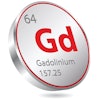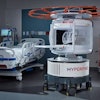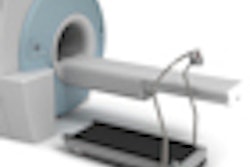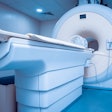CHICAGO - Patients with a history of reactions to contrast agents appear to do just as well without premedication for subsequent imaging tests instead of pretreating with antihistamines or steroids, researchers said on Sunday at the RSNA show.
Doctors reviewed patient charts noting reactions -- mainly hives -- that occurred after the patients underwent imaging studies in which contrast agents were used. They found that when patients who have a history of allergic reactions were premedicated, they actually had a greater risk of reactions than similar patients who were not pretreated.
"Frankly, these results were a surprise to us," said Amy Kolbe, MD, a radiology resident at the Mayo Clinic in Rochester, MN, in her oral presentation at the RSNA meeting.
Because the results were so different than the research team expected, the doctors performed an analysis of possible factors that might have skewed the results. But Kolbe said their further scrutiny of the cases did not turn up any possible culprits.
She said they found no differences in the ages of the patients -- about 60.7 years for those premedicated and 62.5 years for those not premedicated -- and approximately 60% of the patients in each group were men. In addition, there was no statistical difference in the time between the imaging studies, and there was no apparent difference in the severity of the original hives attacks.
In the retrospective study, Kolbe and colleagues identified 246 patients who had hives following an imaging study in which a contrast agent had been used. Of those patients, 74 went on to have at least one more imaging study. Overall, 217 studies were performed among individuals with a history of hives.
Although reactions to imaging studies are rare, occurring in an estimated 0.15% of cases, approximately 70% to 80% of those reactions are hives. The risk of having a second bout of hives or other reactions such as dyspnea increased up to sixfold for subsequent imaging studies, Kolbe explained in her presentation.
Patients in the study who were undergoing a subsequent exam received either no premedication; 25-50 mg of oral diphenhydramine about an hour before imaging; 32 mg of methylprednisolone orally 12 hours and two hours before imaging; or a combination of both drugs.
Study results showed the following:
- Overall, reactions occurred in 62 of the 217 scans among these patients with a history of hives.
- Reactions occurred in 14 of the 91 patients who received no premedication (15%).
- Reactions occurred in 11 of 37 patients on diphenhydramine (30%).
- Reactions occurred in 23 of 59 patients given methylprednisolone (39%).
- Reactions occurred in 14 of 30 patients who received both drugs (47%).
The differences between no medication and those who received medication achieved statistical significance (p = 0.001), Kolbe reported.
"No standard protocol for patients with a history of hive reaction to iodinated contrast exists at our institution," she said. The findings indicate that decisions about premedication should be left up to the physicians and that a preset requirement for premedication might not be necessary, she suggested.
"There are many hospitals that require premedication for patients who have had reactions to previous contrast agents," said Neil Wasserman, MD, professor of radiology at the University of Minnesota in Minneapolis. "One has to remember that the drugs used to prevent reactions also have side effects."
He said that the study does not necessarily mean that pretreatment was not required for these patients but, rather, that pretreatment might not be mandated. However, many physicians might not adopt the implications in Kolbe's findings because of medicolegal issues, he said.
The study did not receive industry support.
By Edward Susman
AuntMinnie.com contributing writer
November 28, 2010
Related Reading
Study: Follow guidelines when treating contrast reactions, August 4, 2008
Reaction to contrast agents may occur despite premedication, February 28, 2008
Targeted renal therapy offers a solution to contrast allergic reactions, February 19, 2008
Copyright © 2010 AuntMinnie.com



.fFmgij6Hin.png?auto=compress%2Cformat&fit=crop&h=100&q=70&w=100)




.fFmgij6Hin.png?auto=compress%2Cformat&fit=crop&h=167&q=70&w=250)











